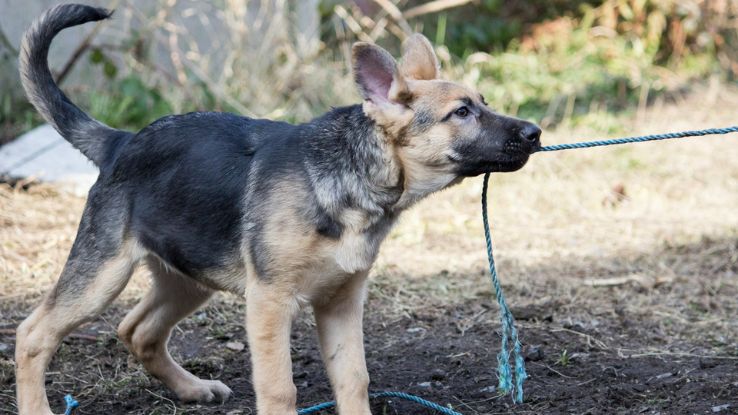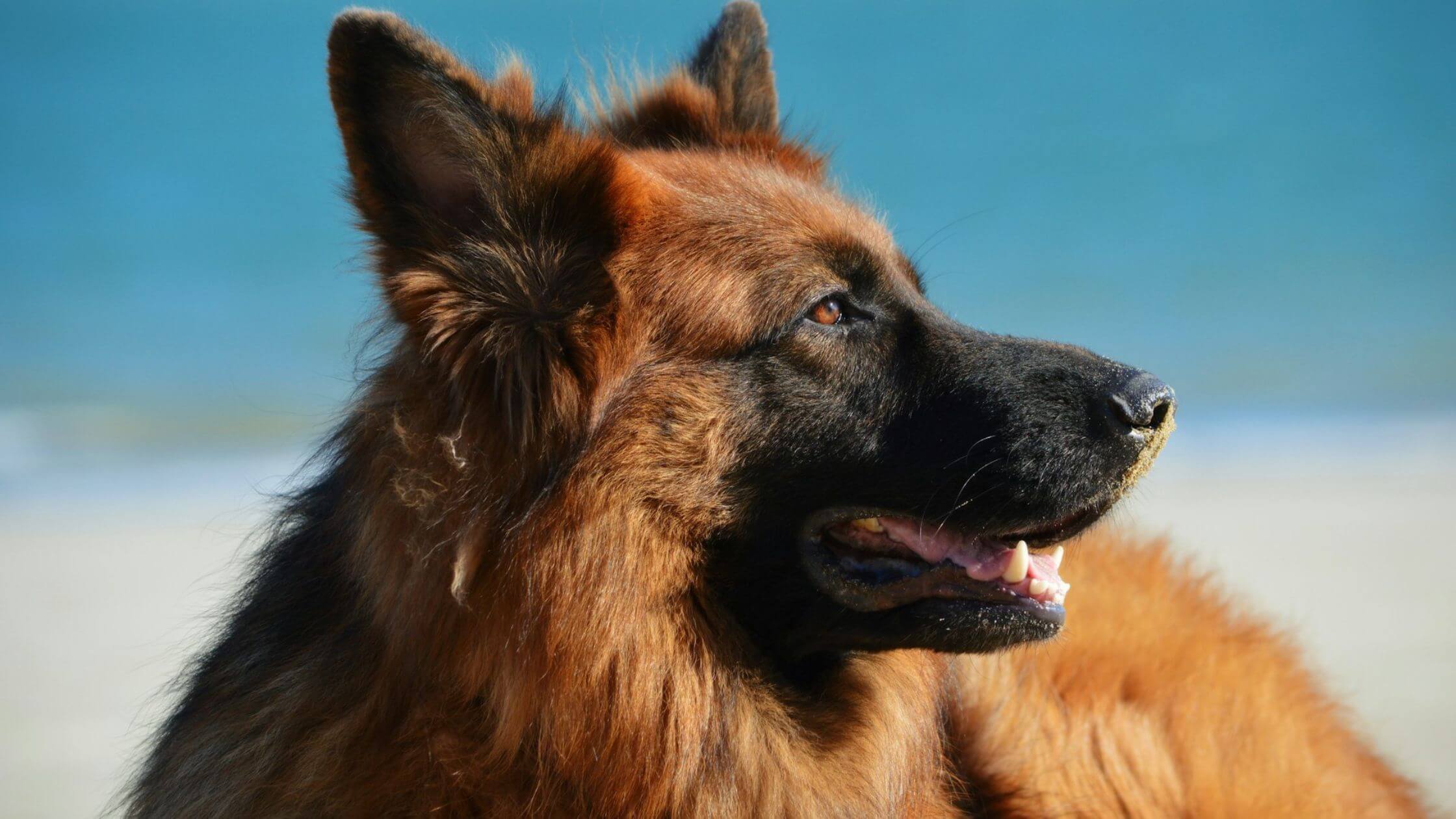All About the German Shepherd
German Shepherds look like wolves. They are known for their strength, loyalty, and protective nature. Besides working as a police dog, German Shepherds enjoy following their owners on adventures, learning tricks, and playing in the backyard.
Adult German Shepherd males usually stand about 24 to 26 inches tall at the shoulder, while females are around 22 to 24 inches. They can weigh between 50 and 90 pounds.
Keep reading to learn more about this popular breed and see if a German Shepherd (aka GSD) is the right fit for you.
History
The German Shepherd breed was first introduced in Germany in the late 1800s. This breed was created by Captain Max von Stephanitz. He wanted to create a breed that would be the best at herding.
This large-sized dog’s title, ‘German,’ was removed two after the two world wars (for obvious reasons), and the name was changed to Alsatian wolf dog. Some parts of Europe still use the name ‘Alsatian wolf dog’ or ‘Shepherd dog.’
The American Kennel Club officially recognized the German Shepherd breed in 1908. According to the AKC’s 2023 list, it is the fourth most popular dog breed.
German Shepherd Appearance

German Shepherds are beautiful dogs. They might appear scary to some as they are large and muscular with a square muzzle, a bushy tail, and often a black mask. Their colors usually include tan and black or red and black, with saddle and blanket markings on their backs. Some have rare colors like sable, silver, liver, or panda. You can also find pure black and white German Shepherds.
These dogs have a thick double coat. The outer layer is water-resistant, and the undercoat is soft. They shed a lot. German Shepherds typically shed once or twice a year but need weekly grooming. You will need to brush them daily during the shedding months.
Most German Shepherds have medium or long coats, but some lack an undercoat. These dogs have different grooming needs. So, you will have to learn how to care for your German Shepherd’s coat to reduce shedding.
German Shepherd Temperament
German Shepherds are intelligent and independent. They’ve been created for herding and, hence, like to be useful. They make excellent guard dogs, as they are cautious of strangers.
Please note that some German shepherds behave differently than others. While most are nice and friendly, others may not make good friends with children and the elderly.
German shepherds are protective, alert, energetic, and playful. They are usually gentler with kids, however they might be aggressive if not socialized properly or kept alone for too long.
They are highly energetic and trainable. This breed is mainly used by military and police forces to track criminals. They help in search and rescue operations and in detecting drugs.
German Shepherd Grooming
As I already mentioned, German shepherds have thick coats, and they shed a lot. They shed all year, especially during the spring and autumn seasons. Brushing this dog once or twice a week will do the work.
Regular bathing is not recommended as it strips the coat of its natural oils. You can bathe them occasionally. Make sure to trim their nails often. Dental health is important, too, so brush their teeth regularly.
German Shepherd Training and Exercise

Training a German Shepherd puppy is most effective when the dog is 8 weeks old. If you don’t provide structured training early on, these puppies will quickly start to make their own rules.
Since German Shepherds are naturally loyal, they can be slightly defensive around strangers. You will have to socialize with them. Introduce your puppy to new people, places, and experiences early to help them adjust.
German Shepherds require at least two hours of exercise each day as adult dogs. Their combination of stamina, intelligence, athleticism, and enthusiasm means they also need plenty of mental stimulation.
If you don’t train or make them exercise, they will turn aggressive. They are sporty, and you will need to do more than teach them the basic sit and stand commands. Giving them challenging tasks will work great. Please make sure they get the right balance of activity. This will help ensure they are happy and well-behaved.
German Shepherd Health Issues
Like many dog breeds, German Shepherds are prone to certain health issues, often due to inbreeding in their early history.
Common health problems in this breed include skin disorders, hip dysplasia, elbow dysplasia, spleen tumors, degenerative myelopathy, anal furunculosis, degenerative spinal stenosis, and Von Willebrand disease.
To help prevent joint problems, consult your veterinarian about dietary supplements that support musculoskeletal health. It’s also important to limit jumping and rough play to protect their joints.
Conclusion
The best way to understand a dog’s personality is to spend time with it. Visiting a shelter lets you connect with a potential new friend before you decide to adopt.
So, if you are looking to buy a German Shepherd, get him from a reputable German Shepherd breeder. This way, you will be able to meet the puppy’s mum and check if she has the temperament you’re looking for.







